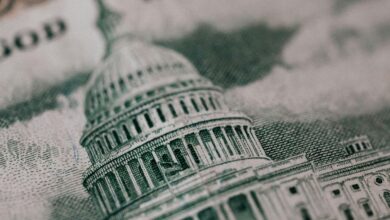TikTok’s U.S. Future Uncertain Following Federal Court Decision

New York (WE) —The fate of TikTok in the United States is under significant threat as a federal appeals court upheld a law requiring its Chinese parent company, ByteDance, to sell the app to a non-Chinese entity by January 19, 2024. The decision, delivered by a panel of three judges from the U.S. Court of Appeals for the District of Columbia Circuit, effectively places one of the world’s most popular social media platforms on the brink of a nationwide ban.
More than 170 million Americans use TikTok as a source of entertainment, education, and even income, making it a cultural staple in the digital era. However, the law in question, signed earlier this year, mandates ByteDance divest TikTok or face a prohibition in the U.S. over national security concerns linked to its ownership.
Court Rejects TikTok’s Appeal
TikTok had petitioned to overturn the law, arguing it unfairly singled out the app and violated the First Amendment rights of its users. The company maintained that selling the app would be nearly impossible due to Chinese government restrictions and that the law represented an overreach of congressional authority.
The judges disagreed, stating that the legislation was carefully tailored to address threats posed by foreign adversaries.
“The government acted solely to protect freedom from a foreign adversary’s control and to limit data gathering on U.S. citizens,” the ruling stated.
Chief Judge Sri Srinivasan acknowledged TikTok’s popularity and its role as a platform for expression and income. However, he emphasized that Congress deemed the national security risks too significant to ignore, even at the potential cost of banning the app.
The Political and Legal Fallout
The decision has sparked a mix of reactions. Advocates for free speech and content creators who depend on TikTok for their livelihoods have expressed concern about the ruling. Meanwhile, lawmakers supporting the ban view it as a critical step in addressing cybersecurity risks posed by Chinese government oversight of private companies.
TikTok’s next move remains uncertain. Legal experts anticipate the company will appeal to the Supreme Court. However, whether the justices will hear the case or intervene before the January 19 deadline is unclear.
Anupam Chander, a law professor at Georgetown University, predicts the Supreme Court may temporarily freeze the law, giving the incoming administration time to negotiate a solution. “The Supreme Court, not wanting to see this app go dark, may delay enforcement, allowing the Trump administration to determine TikTok’s fate,” he said.
Read More:
https://theworldseye.com/travel-guide-to-busan-city-exploring-south-koreas-coastal-gem/
https://theworldseye.com/bitcoin-hits-100k-a-milestone-moment-for-cryptocurrency/
Concerns Over National Security
The central argument for the ban lies in national security concerns. Lawmakers and intelligence officials argue that the Chinese government could exploit ByteDance’s ownership of TikTok to access sensitive user data or spread propaganda. While no public evidence of such activities has been shared, proponents of the law cite China’s stringent regulations on foreign tech platforms like Facebook and YouTube as justification for reciprocal measures.
Challenges to a Potential Sale
While ByteDance has stated that selling TikTok is unfeasible, some observers see the ruling as a potential catalyst for renewed talks. In the past, several U.S. companies expressed interest in acquiring TikTok, including Microsoft, Oracle, and billionaire Frank McCourt.
However, any sale would face immense hurdles. Analysts estimate TikTok’s valuation at over $200 billion, creating financial and logistical challenges. Additionally, Beijing’s 2020 export restrictions on technology could empower the Chinese government to block any potential deal.
Former Treasury Secretary Steven Mnuchin and other industry leaders have floated ideas for a U.S.-led acquisition, but political scrutiny and antitrust concerns remain significant roadblocks.
What’s Next for TikTok?
The impending January deadline places enormous pressure on all parties involved. If no resolution is reached, millions of American users could lose access to a platform that has become a cornerstone of modern culture. Creators who rely on TikTok as a primary income source face an uncertain future, and businesses that have integrated the app into their marketing strategies may need to pivot.
President-elect Donald Trump’s stance on TikTok adds another layer of complexity. While he has expressed support for the app and pledged to “deliver a plan to rescue it,” his team has not outlined a clear strategy. Observers remain skeptical about whether the administration can intervene effectively within the limited timeframe.
The Bigger Picture
TikTok’s legal battles come at a time when global tensions over technology and data sovereignty are escalating. The case underscores the challenges of balancing national security with the principles of free speech and market competition.
As the January 19 deadline approaches, the outcome of TikTok’s fight for survival will serve as a bellwether for the future of foreign-owned technology in the United States. Whether through a sale, legal reprieve, or outright ban, the resolution of this case will have far-reaching implications for the digital landscape.
















3 Comments